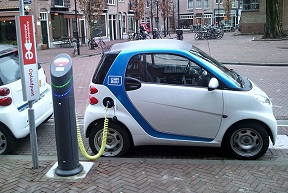A recent article in The Conversation shows the undesirable results of a climate policy that lends its ears to public opinion. For consumers are at odds with themselves – in fact, they are just waiting for governments to take the lead.

Indecisiveness
Most prominently, the indecisiveness of public opinion shows in an opinion poll carried out in a number of countries just before the 2021 UN climate conference COP26. According to this poll, 76% of all respondents would accept stricter rules and environmental regulations imposed by their governments. And yet 46% don’t think they really need to change their habits. The research was carried out in the United states, the United Kingdom, Spain, France, the Netherlands, Germany, Poland, Singapore and New Zealand. And although the percentages differ somewhat between countries, the general picture remains the same.
What does this tell us about climate policy? Do these results suggest that people rely primarily on others to make the most important contribution? Or is this a secret invitation to governments to step in and take the lead? Because people realize that changes are called for? The author of the article, Noel Fay Cass, holds the latter opinion. His research shows that the public are ‘willing to have their freedom of choice limited for the sake of the environment’.
Behavioral changes
But governments still tend to rely on consumer choice, respecting what they might perceive as the autonomy of the consumers. Wage a climate policy by imposing measures? They can do that. But apparently, our governments aren’t yet convinced of the seriousness of the climate threat. Whereas in the past, they accomplished major behaviour changes by imposing measures; like cutting smoking and introducing seatbelts in vehicles. Initially unpopular regulation. But still, governments succeeded.
The measure in which people are willing to accept stricter rules for the benefit of the climate, suggests that they realize the necessity to make lifestyle changes. But we need to acknowledge that market prices often suggest us to make the wrong choices. Like heat our homes with gas instead of heat pumps. Or take the motor car instead of train or bus. Or go on a cheap holiday by airplane instead of staying close to home.

Consumer autonomy?
Still, there is evidence that people listen closely to what governments tell them. The author gives an example. In the UK, the high cost of electric vehicles put many off buying them in the past. But when in 2021, the UK government announced their plan to ban selling fossil-fuelled cars by 2030, sales of EVs rocketed. An announcement on phasing out gas central heating might have a similar effect. It could push consumers to buy, and producers to manufacture, more heat pumps.
In short, in climate policy, governments will need to revaluate their position on consumer autonomy. Neoliberal theory puts this above all. But consumers themselves might feel differently about this. Official policy still relies on ‘information’ to shape the behaviour of the public. But the public itself primarily calls for leadership. Is climate change really as bad as they tell us? Then show it! Impose bans (and announce them long beforehand). And support people who cannot afford the proposed change.
Climate policy: limit the freedom of consumers
The author of the article in The Conversation ran workshops in order to investigate how people feel about this. Their overall impression: people prefer structural changes. Meaning providing low, and removing high carbon options. The present policy of providing information and advice was seen as only to be effective after the environment of consumers had already been altered. I.e. not as a vehicle of important changes. As one interviewee commented, ‘You can’t change people’s behaviour until [alternative] structures are in place.’
Evidently, some are happy to have their own freedom as consumers limited. Policy thinktank Demos recently asked people to prioritise a set of UK climate policy changes supporting Paris agreement commitments. Between 84% and 96% of participants supported policies including flight levies, carbon taxes, restricting cars in cities and adding speed limits: all requiring strong government action that penalises or limits choices. The conclusion, according to The Guardian: the public want the government to lead the transition to a net-zero economy, rather than leave it to tax measures and the market alone. So what’s stopping us? Let’s do it!
Interesting? Then also read:
Precision horticulture: what the consumer wants
A plant-based diet would have a major impact on climate change
Sustainable materials policy? Try bans and taxes
